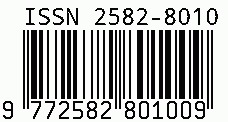
International Journal of Leading Research Publication
E-ISSN: 2582-8010
•
Impact Factor: 9.56
A Widely Indexed Open Access Peer Reviewed Multidisciplinary Bi-monthly Scholarly International Journal
Plagiarism is checked by the leading plagiarism checker
Call for Paper
Volume 6 Issue 4
April 2025
Indexing Partners



















Leveraging AI in RPA: The Future of Intelligent Automation
| Author(s) | Sai Sneha |
|---|---|
| Country | United States |
| Abstract | Artificial Intelligence (AI) is transforming Robotic Process Automation (RPA) by enabling automation solutions that are more intelligent, adaptive, and capable of handling unstructured data. Un- like traditional rule-based RPA, AI-powered automation leverages machine learning (ML), natural language processing (NLP), and computer vision to enhance decision-making, automate complex tasks, and improve efficiency. This paper explores how AI enhances RPA, from intelligent document processing and predictive analytics to AI- driven chatbots and cybersecurity. Organizations adopting AI in RPA have reported significant cost savings, improved accuracy, and faster process- ing times. For instance, businesses leveraging AI-driven RPA for document processing have achieved 70% reduction in manual effort and annual savings of over $500,000. AI-powered process mining has helped companies increase automation success rates by 50%, optimizing workflows and reducing bottlenecks. As hyperautomation becomes the future of business operations, organizations need to integrate AI into their RPA strategies to remain competitive. This paper provides insights into the practical applications, quantifiable benefits, and future trends shaping the next generation of intelligent automation. |
| Keywords | Robotic Process Automation (RPA), Database Integration, UiPath, AI |
| Published In | Volume 5, Issue 12, December 2024 |
| Published On | 2024-12-10 |
| Cite This | Leveraging AI in RPA: The Future of Intelligent Automation - Sai Sneha - IJLRP Volume 5, Issue 12, December 2024. DOI 10.5281/zenodo.14982420 |
| DOI | https://doi.org/10.5281/zenodo.14982420 |
| Short DOI | https://doi.org/g86873 |
Share this


CrossRef DOI is assigned to each research paper published in our journal.
IJLRP DOI prefix is
10.70528/IJLRP
Downloads
All research papers published on this website are licensed under Creative Commons Attribution-ShareAlike 4.0 International License, and all rights belong to their respective authors/researchers.

